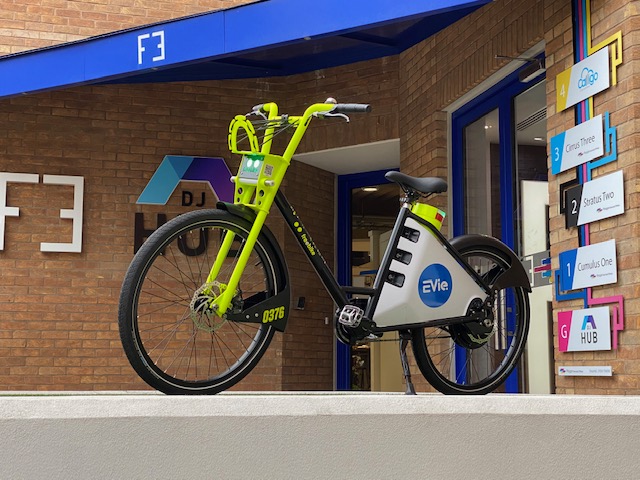


What steps does Jersey need to take to create a truly modern public transport system? It's time we talked about Uber...
Having worked with EVIe in launching the island’s first e-car and e-bike sharing scheme, Digital Jersey's 'Smart Islands' lead James Haywood is now pushing for the modernisation of other aspects of the island’s public transport.
He shared his thoughts in this column for Express...
"We have no choice but to rethink our approach to transport and car use in Jersey, we simply do not have space. We have one of the highest ‘per head’ car ownership figures in the world, which is not a good thing.
My interest in transport is more than a curiosity. I started my career at Transport for London before moving to Zipcar, the original 'Mobility as a Service' provider (PAYG Car Club), working with policy makers and authorities to grow car-sharing, all of which was underpinned by technology and the use of smartphones.
It will be technology that is the central enabler to change in Jersey. Taxis are fundamental to this, and how the island works to facilitate demand responsive taxi services like UBER is, in my opinion, the most significant part of the puzzle.

Pictured: Digital Jersey Business Development Manager James Haywood is pushing to modernise Jersey's public transport.
I spoke to UBER, directly, to understand their appetite for Jersey and, fair to say, there is just not the scale here to interest them (yet). However, this is no bad thing, we are fortunate enough to have an innovative digital sector developing home-grown solutions, including the GoTo platform, which operated in much the same way, connecting regulated drivers to customers via an app. However, unlike in Guernsey, there was little or no interest from drivers to use the platform in Jersey and the initiative is now on hold.
We know there is consumer demand – the ‘Facebook Lifts’ page leaves us in no doubt of this. As well, the growth of EVie, the shared e-car and e-bike scheme, demonstrates Jersey’s readiness for new services.
At a ‘public good’ level, platforms like UBER result in more efficient use of vehicles and a reduction in empty miles driven, good for drivers’ earnings, good for congestion and the environment. As well, they yield an enormous wealth of data, including how we move, length of journeys, origins, and destinations, impacts of weather and much more. By having access to this, governments can make informed decisions regarding future transport policy and investment. This granularity of data is currently only a faint aspiration.

Pictured: "The growth of EVie, the shared e-car and e-bike scheme, demonstrates Jersey’s readiness for new services."
At a user level, UBER deliver a superior user experience, resulting in a safer, more efficient, and often lower cost service. As well as cashless payments, access to your travel history, the platform allows you to see who is picking you up, what car they are driving, their location and ETA. It puts users in control and removes uncertainty.
Once we have a digital taxi industry, further improvement follows. A good example is UBER Pool, which facilitates ride sharing – more sustainable and lower cost for users. In an island this size, with many making similar journeys simultaneously, a solution like UBER Pool could have an impressive impact.
Alongside a modern bus service, shared cars and bikes, improved cycling and walking infrastructure, countless studies demonstrate that a good quality, modern and forward-thinking taxi industry, reduces dependency on the private car, which ultimately is what this is all about, and to date, we are failing to achieve."
Comments
Comments on this story express the views of the commentator only, not Bailiwick Publishing. We are unable to guarantee the accuracy of any of those comments.